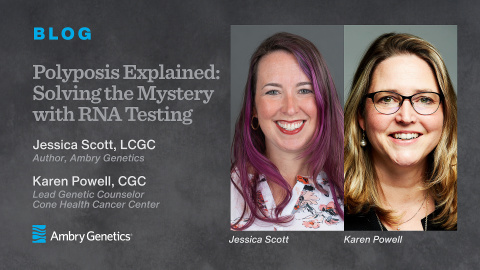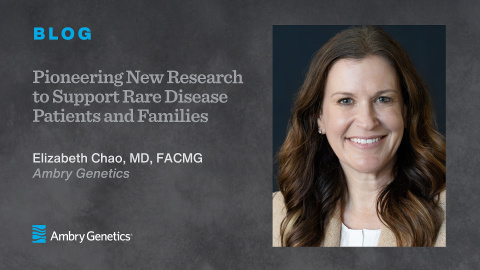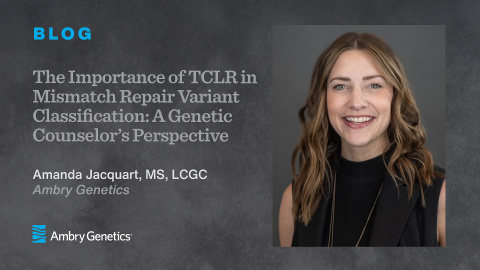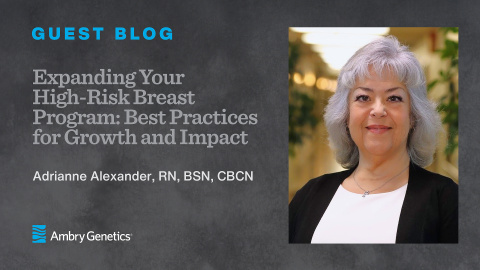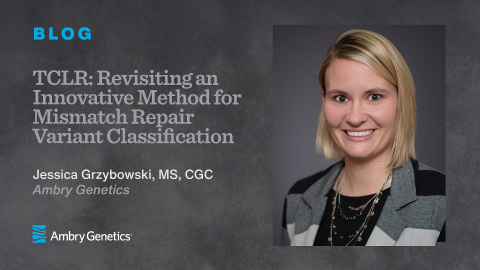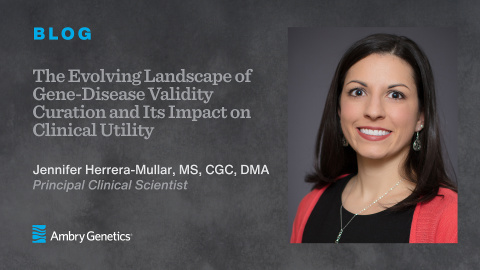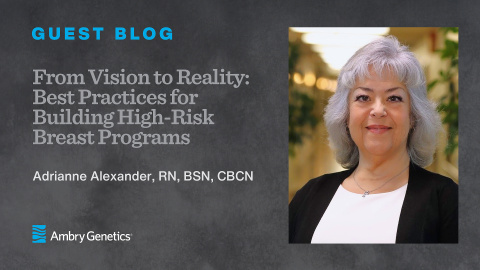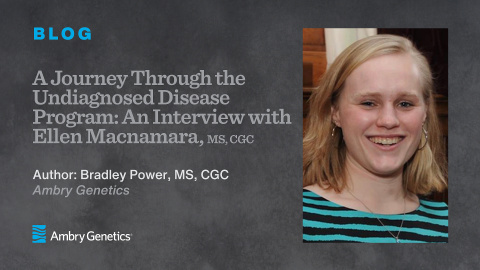- By Jessica Scott, MGC, CGC
- Posted October 16, 2024
Polyposis Explained: Solving the Mystery with RNA Testing
As a genetic counselor at Cone Cancer Center for the last twelve years, Karen Powell, CGC, enjoys helping patients understand their cancer risks. Hereditary cancer testing may provide important and possibly life-saving information for not only the patient but their family members as well. Many patients present with a family history of cancer,…
- By Elizabeth Chao, MD, FACMG
- Posted October 10, 2024
Pioneering New Research to Support Rare Disease Patients and Families
Unlocking the mysteries of the genome is our life’s work. Since the launch of our first clinical genomic test for identifying the genetic cause of rare diseases, we’ve sought ways to leverage our technology and expertise to support clinicians and the patients and families they serve. As genomic technologies improve, we gain new tools that…
- By Meagan Farmer
- Posted October 2, 2024
2024 Hereditary Cancer Testing Menu Update
Launching November 12, 2024 At Ambry, we understand the critical role genetic testing plays in tailored cancer treatment and proactive care. With our enhanced menu, you can deliver the clinical insights your patients need, backed by the exceptional support and patient access you expect from Ambry. Evidence-Informed and Comprehensive…
- By Jodi Tahsler
- Posted August 19, 2024
From Lynch Syndrome Diagnosis to Advocacy: A Patient and Genetic Counselor Reconnect
In honor of Patient Advocacy Day, Ambry connected with a genetic counselor and one of her former patients to find out how genetic testing made a difference for his healthcare and inspired him to advocate for other patients. Ofri Leitner, MS, LCGC, is a genetic counselor who currently manages the Oncology Genetics Program at UNC Rex Cancer Center…
- By Amanda Jacquart, MS, LCGC
- Posted July 31, 2024
The Importance of TCLR in Mismatch Repair Variant Classification: A Genetic Counselor’s Perspective
In the field of genetic counseling and testing, the stories of patients and the healthcare professionals who guide them through their journeys are as compelling as they are educational. Recently, I had the privilege of working with Alyssa Valentine, MS, CGC, a senior genetic counselor at Cook County Health in Chicago, Illinois. In her role in a…
- By Adrianne Alexander, RN, BSN, CBC
- Posted July 17, 2024
Expanding Your High-Risk Breast Program: Best Practices for Growth and Impact
One of the accomplishments I am most proud of is driving the creation of a successful high-risk breast program in a large community-based health system. I am often asked how we did it. For advice on getting started, check out the first blog in this series. If you have already implemented a high-risk breast program, congratulations! It’s time…
- By Jessica Grzybowski, MS, CGC
- Posted July 3, 2024
TCLR: Revisiting an Innovative Method for Mismatch Repair Variant Classification
In the rapidly evolving landscape of hereditary cancer genetics, precision in classifying genetic variants is crucial. Ambry Genetics recognizes this need and consistently innovates by applying rigorous methods and multidisciplinary expertise to better interpret variants, including for specific gene and variant types that can be more challenging.…
- By Jennifer Herrera-Mullar, MGC, CGC, DMA
- Posted July 2, 2024
The Evolving Landscape of Gene-Disease Validity Curation and Its Impact on Clinical Utility
In the ever-evolving field of genetics, understanding the relationship between genes and diseases is crucial for improving patient care. Gene-Disease Validity (GDV) scoring plays a pivotal role in this process, helping genetic counselors and healthcare professionals assess genetic risks and enhance medical management. As GDV scoring techniques…
- By Adrianne Alexander, RN, BSN, CBC
- Posted June 20, 2024
From Vision to Reality: Best Practices for Building High-Risk Breast Programs
Breast cancer remains the number one most common cancer among women in the United States, and the number two leading cause of cancer deaths among women.1 Approximately 20% of all breast cancer cases are associated with a family history of breast cancer, and approximately 10% are hereditary (due to pathogenic variant or mutation in a gene).2,3…
- By Bradley Power, MS, CGC
- Posted June 11, 2024
A Journey through the Undiagnosed Disease Program: An Interview with Ellen Macnamara, MS, CGC
As part of working together on a recent EducateNext webinar, I had the privilege of reconnecting with my colleague and mentor, Ellen Macnamara, ScM, CGC. Mrs. Macnamara is a genetic counselor with the National Institutes of Health Undiagnosed Diseases Program. Brad: Hi Ellen. We’re excited to host you for a webinar. Can you tell us more about…
